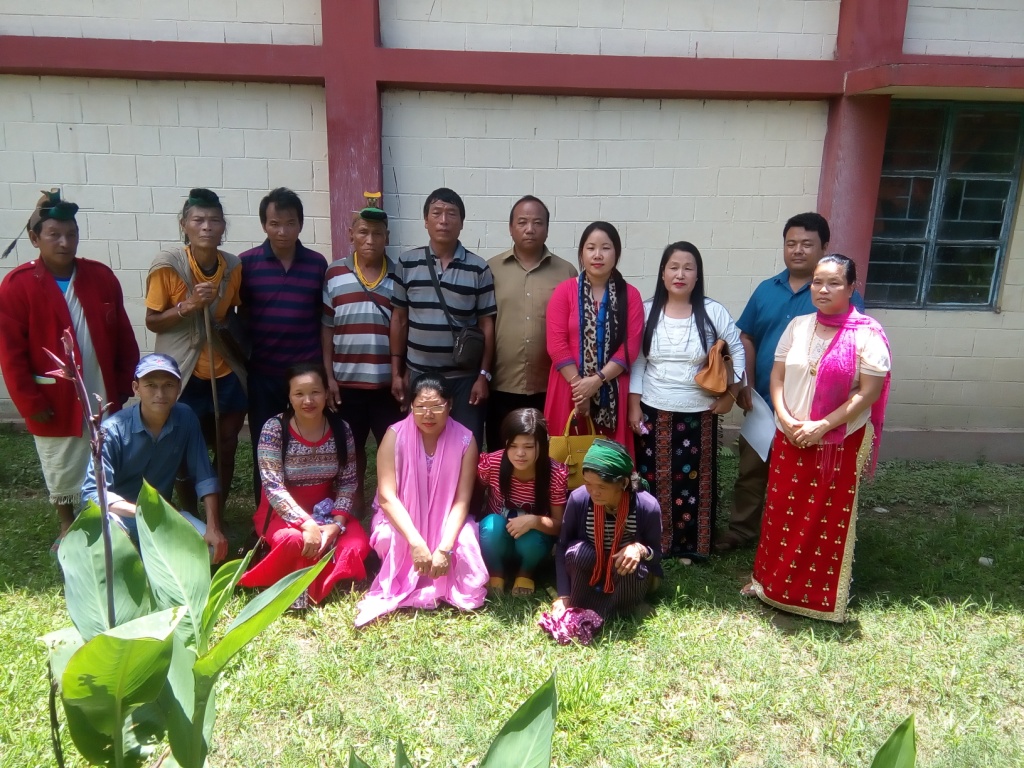Arunachal Girls Stand Up Against Child Marriage

ITANAGAR: Young girls in Arunachal Pradesh’s East Kameng district are slowly beginning to fight the evils of child marriage in the face of familial stigmatization and old patriarchal traditions.
On May 31 this year, 13-year old Jeroni Tawo had dared to walk out on her marriage to a much older man and sought help from the district unit of the Women Welfare Organisation (WWO) to end the union. Now, another minor under similar circumstances has been ‘rescued’.
Last month on July 13, Fekik Bokar had reached out to the district WWO president Veena Waii Sonam and narrated her story.
Fekik is 15-years old and a ninth standard student at the government higher secondary school at the district headquarter of Seppa. Two years ago in 2014, she was married off to Amu Chege (now 41 years old) after the exchange of gifts as is traditional amongst the Nyishi tribe, to which they both belong. Incidentally, Fekik’s eldest sister, Femi, is still married to Chege.
The couple (Chege and Femi) have been married and trying for a child for a number of years without any luck. As is customary, it was agreed that Chege would take in another wife (polygamy is a socially sanctioned practice among some of the tribes in the state although people are beginning to call for its end). Keeping in line with tradition, it was decided that it would be best for him to marry his wife’s sister. And so in 2014 the bride price was paid, which consisted of (among other things) seven mithuns, a bovine found in this region and highly valued almost all over the tribal-majority state.
After Fekik reached out to Sonam last month, she went straight to the district office of the Integrated Child Development Services (ICDS) where the deputy director (in-charge), DK Thungon, called all parties involved.
“I counselled and advised them to resolve the matter themselves by August 1 or face legal consequences,” Thungon informed over the phone speaking from Seppa.
Today a ‘hearing’ was held and the marriage was legally nullified after it was agreed by both families that a mithun and her calf would be returned to Chege, who readily agreed to lower the value of the bride price that he had paid.
However, since the marriage was held with the consent of the minor girl’s family, they are presently not too keen on taking her back and Fekik has since lived with Sonam at her residence.
Thungon said that “in such cases, the girls are the ones who are left vulnerable” and has asked her school to house her in the hostel.
He has also told Fekik’s family to make sure they do not do such a thing again in future. While Fekik’s future seems to be secure for now, there are many others whose fate is unknown.
Sonam informed that the practice is so prevalent in the district that as soon as Fekik’s case was disposed off, another case has been brought to the attention of the ICDS office. However, she said that campaigns by the WWO have helped spread awareness amongst young girls.
Pooja Sonam Natung, general secretary of the district unit of the WWO, said that last year their organisation had conducted campaigns in most schools across the district which has helped girls find the courage to step forward.
She said that it is “painful to learn that such things are still prevalent” and adds rhetorically “imagine how many cases go unreported”.
However, child marriage is not confined to one district in the state alone. According to the Census 2011, there are 3245 children (1086 males and 2159 females) from the ages of 10 to 14 years who were married at the time of the survey. Additionally, 14422 children (3203 males and 11219 females) from the ages of 15 to 19 were married when the Census was being complied.
Mitali Tingkhatra, chairperson of the Arunachal Pradesh State Commission for Women and Child, said that child marriage is still prevalent although the numbers may not seem too high. She also informed that five cases were reported last year from across the state.



